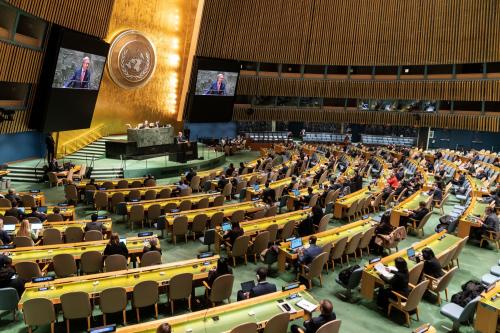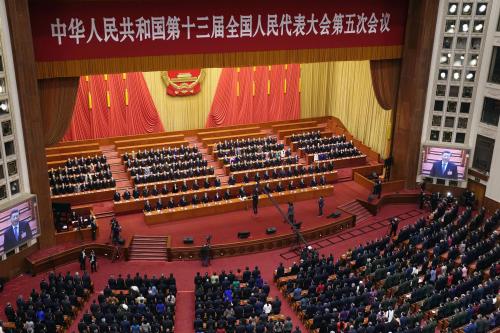Higher education—and its successful reform—is essential to the long term stability and prosperity of the Arab world. The youth uprisings which triggered the Arab Spring in Tunisia and Egypt have highlighted the urgency of defusing the region’s ticking demographic time bomb: young, growing populations facing uncertain futures. To combat high unemployment and sluggish private sector growth, the Arab world must focus on building a knowledge society quickly in order to create three million more jobs annually than it currently generates, according to World Bank estimates. With most Arab governments unable or unwilling to guarantee civil service jobs to all university graduates as they did in the past, growth depends on the private sector; however, most graduates appear to lack the required skills. Therefore building universities that can produce both cutting edge research and skilled workers who can compete in the global economy is the key to the region’s future—and tiny Qatar is leading the way, using the best of the American higher education system in the process and financing the process with its extensive oil and gas wealth.
Qatar’s Emir Sheikh Hamad bin Khalifa Al-Thani has a bold vision: to use the wealth from the nation’s abundant oil and natural gas reserves to transform the country into a knowledge-producing economy within a generation. To do so, Qatar has reformed its entire education system, from elementary school to higher education, with the aid of the RAND Corporation. Why would one of the world’s wealthiest nations (with a GDP per capita approaching $110,000 according to 2011 estimates) embark on such a challenging path of systematic education reform? With a population of only 1.65 million (of which at most 20% are Qatari nationals), there appears to be plenty of wealth to go around. Like its oil-producing Persian Gulf neighbors, most Qatari citizens work in secure public sector jobs with generous benefits while expatriates dominate the private sector.
But that is precisely the model that Sheikh Hamad wants to change. He began by establishing the Qatar Foundation in 1995 under the leadership of his wife, Sheikha Mozah Bint Nasser Al-Missned, with the mission of upgrading the nation’s human capital as quickly as possible. The country’s strategy has been to adapt the best of the US higher educational system to local needs and the national vision while simultaneously preserving the country’s Muslim and Arab heritage. The ultimate goal is to “Qatarize” the workforce so that citizens, women as well as men, will obtain the necessary skills to shape the nation’s destiny and lessen the national dependence on an expatriate work force.



Commentary
Op-edHigher Education Reform in the Arab World: The Model of Qatar
July 31, 2012